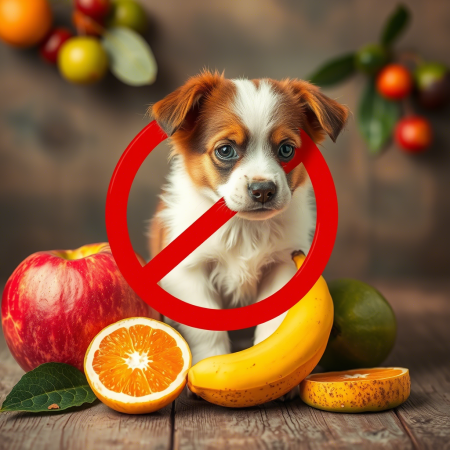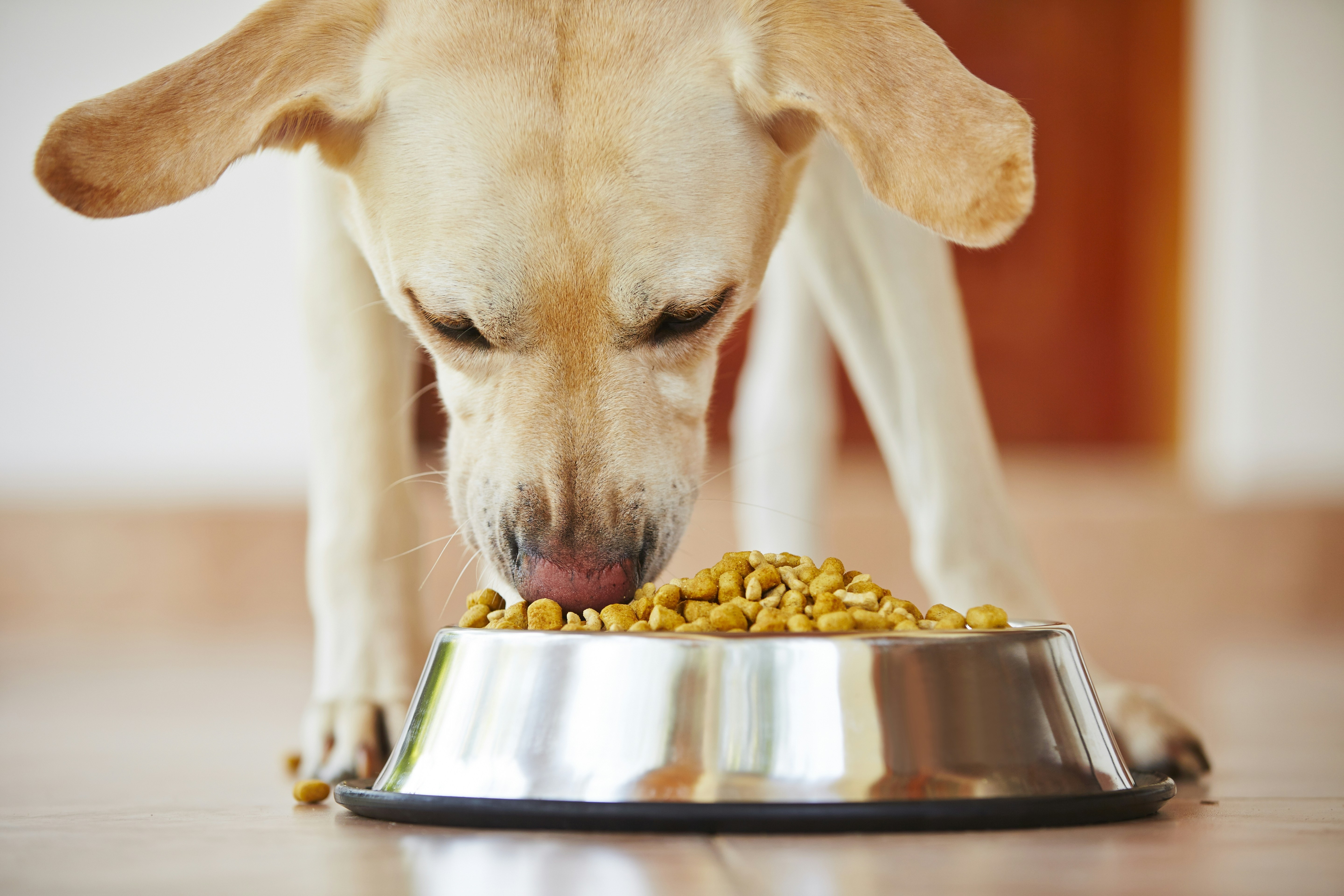Introduction to Pet Nutrition
Understanding pet nutrition is crucial for ensuring the health and well-being of our beloved animal companions. Just as a balanced diet is essential for humans, the same principle applies to pets. Proper nutrition helps maintain their overall health, supports growth and development, and prevents various health issues. Among various food categories, fruits are a topic of significant interest, as they can serve as a healthy treat or supplement to a pet’s diet. However, not all fruits are suitable for our furry friends, and some can even pose serious health risks.
Pets, whether dogs, cats, or other domesticated animals, require specific nutrients to thrive. These include proteins, carbohydrates, vitamins, and minerals, often best derived from high-quality pet food. Nevertheless, fruits can provide essential vitamins and hydration, making them an appealing option for pet owners. For example, fruits like apples and blueberries are packed with nutrients that may benefit pets, enhancing their immune systems and promoting healthy skin. However, it’s vital to distinguish which fruits are safe for pets and which ones are harmful.
Various fruits contain substances that can be toxic to pets. Grapes and raisins, for instance, are known to cause kidney failure in dogs, while cherries can lead to gastrointestinal distress. Therefore, recognizing safe dietary choices is a critical task for pet owners. Careful consideration and informed choices when introducing fruits into your pet’s diet can make a significant difference in their health. Knowledge about which fruits are permissible and which are not can lead to better feeding practices and promote a longer, healthier life for pets.
Understanding Pet Digestive Systems
The digestion of food in pets significantly differs from that of humans, influencing what fruits are considered safe or harmful for them. Pets, including dogs and cats, have evolved digestive systems that are tailored to process specific types of food; their bodies are not equipped to handle certain substances that humans consume with ease. This makes understanding pet digestion crucial when determining which fruits can and cannot be introduced into their diets.
For instance, dogs possess a shorter gastrointestinal tract than humans, which limits the time food spends in the stomach before it enters the intestines. This rapid transit time means that fibrous fruits may not be efficiently digested, leading to gastrointestinal discomfort or distress. On the other hand, the digestive enzymes present in dogs and cats are specialized for breaking down proteins and fats, rather than sugars and acids found in many fruits. Consequently, pets may struggle to process fruits that are enjoyed by humans, such as berries, citrus fruits, or grapes, which can be harmful foods for pets.
Additionally, the biological traits of different pets further contribute to their dietary restrictions. For example, while dogs can sometimes tolerate a small amount of fruit, cats are obligate carnivores and derive their nutrients primarily from animal sources. As such, fruits that are beneficial to one species could be toxic to another. Grapes and raisins are a prime example; they can cause severe kidney failure in dogs, yet may not affect all pets equally. Therefore, it is essential for pet owners to be well-informed about their companions’ unique digestive processes and the potential risks associated with various foods in order to maintain their overall health and well-being.
Fruits That Are Safe for Pets
When considering fruits that are safe for your beloved pets, it is essential to select options that not only appeal to their taste buds but also contribute positively to their health. Fortunately, several fruits can be included in the diets of both dogs and cats, offering various nutritional benefits. One of the most popular and safe fruits for pets is the apple. Rich in vitamins A and C, apples also provide dietary fiber, which aids in digestion. Ensure that you remove the seeds and core before offering this crunchy snack to your furry friend.
Another excellent choice is blueberries. These small, vibrant berries are packed with antioxidants, which are crucial in maintaining your pet’s overall health. Blueberries are low in calories and high in fiber, making them a perfect treat for pets that require weight management. Additionally, they have been known to support cognitive function, which is beneficial for aging pets.
Bananas are also a favored fruit among many pets. They are an excellent source of potassium, vitamin C, and vitamin B6. The natural sugars present in bananas provide an instant energy boost, making them ideal for active pets. However, moderation is key, as the high sugar content can be excessive if consumed in large quantities. These safe fruits for pets serve as perfect healthy treats or rewards, enhancing the bond between pet and owner while contributing to their health and well-being.
Lastly, watermelon is another hydrating fruit that can be offered to pets. The flesh is safe and contains vitamins A, B6, and C. It is important to remove the seeds and rind before feeding it to your pet, as these parts can be harmful. By incorporating these safe fruits into your pet’s diet, you can provide variety and essential nutrients while ensuring their safety and enjoyment.
Fruits That Are Prohibited for Pets
When considering a pet’s diet, it is crucial to be aware of which fruits are deemed harmful or toxic. Certain fruits pose serious health risks to dogs, cats, and other domestic animals. Among the prominent toxic fruits for pets are grapes and raisins, which have been linked to acute kidney failure in dogs. Even small amounts of these fruits can lead to severe health complications, including vomiting, diarrhea, and lethargy. Symptoms of distress typically emerge within hours of ingestion, making prompt veterinary attention essential.
Another fruit that is hazardous to pets is cherries. While the fleshy part of the cherry is not toxic, the pits contain cyanide, which is poisonous to both cats and dogs. Ingesting large quantities of these pits can lead to serious health issues, including respiratory failure and, in extreme cases, death. It is important to ensure that pets do not have access to cherry trees or any foods containing cherries to avoid accidental ingestion.
Additionally, fruits like avocados can also pose risks. Though avocados are not toxic to dogs, they contain a substance known as persin, which can be harmful to certain animals, particularly birds and rodents. Commonly, pets can experience gastrointestinal upset after consuming avocados. Therefore, pet owners should prioritize the health and safety of their beloved companions by prohibiting access to these fruits.
In summary, it is vital to educate oneself on the specific fruits that are harmful to pets. Grapes, raisins, cherries, and avocados should be kept away from pets to avoid potential health risks. Always consult a veterinarian for comprehensive dietary guidelines to ensure the well-being of pets and to reinforce safe practices regarding food choices.
Signs of Fruit Toxicity in Pets
As devoted pet owners, it is crucial to be aware of the potential dangers that certain fruits may pose to our furry friends. Pets can sometimes exhibit various signs and symptoms if they have ingested fruits that are toxic to them. Knowing these warning signs can aid in the early identification of potential health risks, allowing for prompt action and care. Common symptoms of fruit toxicity in pets include vomiting, diarrhea, lethargy, and excessive drooling. These symptoms may vary depending on the type of fruit consumed and the size and health of the pet.
In addition to gastrointestinal distress, pet owners should also be vigilant for more serious signs such as difficulty breathing, seizures, or unusual behavior. These symptoms may indicate a severe reaction that necessitates immediate veterinary attention. If you notice any of these warning signs, it is essential to contact your veterinarian or an emergency pet care service as soon as possible.
It is beneficial for pet owners to keep a list of fruits that are known to be harmful to animals, such as grapes, raisins, and certain citrus fruits. Educating yourself about the risks associated with these foods can prevent accidental poisoning. If a pet has consumed a prohibited fruit, it is advisable to check for symptoms closely and to provide your veterinarian with information about the fruit consumed to ensure appropriate care.
For those urgent situations, having quick access to emergency pet care resources is invaluable. Many veterinary clinics offer 24-hour emergency services, and knowing their contact information can save precious time in an emergency. Always err on the side of caution; if in doubt about your pet’s health after they have consumed any type of fruit, seek professional medical advice promptly. This proactive approach can help safeguard your beloved pets from serious health complications.
How to Safely Introduce Fruits into Your Pet’s Diet
Introducing fruits to pets can be a rewarding experience, both for the owner and the animal. However, it is essential to approach this process with care to ensure the health and well-being of your furry friends. The first step is to select fruits that are safe for your pets. Common pet-friendly options include apples, blueberries, and bananas, while toxic fruits such as grapes and cherries should be avoided entirely.
Once you have identified suitable fruits, moderation is key. It is advisable to start with small portions to gauge your pet’s reaction. Observe their behavior and digestion closely for any signs of discomfort or allergic reactions. Signs may include vomiting, diarrhea, or unusual lethargy. If your pet experiences any adverse effects, discontinue the fruit and consult a veterinarian if symptoms persist.
As you introduce fruits, consider incorporating them as part of a balanced diet rather than a primary food source. Fruits should complement your pet’s regular meals and not replace essential nutrients provided by their standard diet. It is beneficial to establish a routine, offering fruits as an occasional treat, which helps to maintain your pet’s interest without overwhelming their digestive system.
Additionally, preparation is essential when introducing new fruits to pets. Washing fruits thoroughly to remove pesticides is a critical step, and removing any seeds or pits will help prevent choking hazards. Cutting fruits into manageable pieces can make it easier for pets to enjoy them safely. Remember that each pet is unique; what works for one may not work for another, thus tailored observations will guide the best practices in introducing fruits to pets effectively.
Frequently Asked Questions (FAQ)
When it comes to the dietary needs of pets, particularly regarding fruits, many pet owners often have questions. It’s essential for the wellbeing of your furry companions to understand which fruits are safe and which should be avoided. Below, we address some common inquiries related to fruits and pets.
Can dogs eat oranges? Yes, dogs can eat oranges in moderation. Oranges are rich in vitamin C, potassium, and fiber, making them a healthy option for your pet. However, the citrus scent may not appeal to all dogs, and consuming too much can lead to gastrointestinal upset. Always introduce any new fruit gradually and monitor your dog for any adverse reactions.
Are there any fruits that are universally safe for pets? While many fruits can be shared with furry friends, there is no single fruit that is universally safe for all pets. For example, apples (minus the seeds) and blueberries are generally recognized as safe for most dogs. On the other hand, grapes and raisins are toxic to dogs and can cause serious health issues, including kidney failure. It’s crucial to research each fruit before offering it to your pet and consult your veterinarian for specific recommendations.
Another common question is, Can cats eat bananas? While bananas are not harmful to cats and can serve as a source of dietary fiber, most felines may not find the texture or taste appealing. Always ensure that any fruit offered to pets is cut into small, manageable pieces to prevent choking hazards and encourage safe consumption.
By addressing these FAQs, pet owners can make informed decisions regarding their furry companions’ fruit-related diets, ensuring they receive safe and healthy treats. Always remember that moderation is key, and when in doubt, consult your veterinarian to discuss dietary options for your beloved pets.
Expert Opinions on Pet Diets
When it comes to creating a balanced diet for pets, particularly in the context of including fruits, input from veterinarians and pet nutritionists is invaluable. These professionals emphasize that fruits can offer several health benefits; however, caution is paramount due to potential risks associated with specific types of fruits. Dr. Jane Morris, a veterinarian with over a decade of experience, states, “Fruits can enrich a pet’s diet, but pet owners must be aware of which fruits to include and which to avoid. Certain fruits like grapes and raisins are particularly toxic and can harm pets.” It is essential to prioritize safety when introducing any human food, including fruits, into a pet’s diet.
Moreover, a balanced diet should mirror the nutritional requirements of the specific pet type. According to Dr. Kevin Liu, a certified pet nutritionist, “While some fruits such as apples and blueberries are safe and can be a great source of vitamins and antioxidants, others, like avocados, pose a risk due to their high-fat content and potential toxicity.” This insight indicates that not all fruits are universally beneficial for pets, underscoring the need for tailored dietary approaches.
In discussions about pet diets, one frequently mentioned aspect is the role of portion control. Veterinary nutritionists argue that even healthy fruits should be given in moderation to avoid gastrointestinal upset and maintain an appropriate calorie balance. Dr. Sarah James, a renowned veterinarian specializing in pet nutrition, advises, “It’s vital for pet owners to consult with their veterinarian before making significant changes to their pets’ diets, including the incorporation of fruits.” This consultation ensures that dietary transitions are thoughtfully managed to promote overall health and wellness.
Ultimately, informed decisions based on professional guidance can significantly enhance the quality of a pet’s diet. By understanding the specific health implications of various fruits, pet owners can better support their furry companions’ well-being.
Conclusion: Making Informed Choices for Your Pets
In the journey of ensuring optimal nutrition for our beloved pets, understanding which fruits are safe and which are harmful is essential. Throughout this discussion, we’ve highlighted various fruits that are both permitted and prohibited for your pets. It is crucial to note that while some fruits provide valuable vitamins and nutrients beneficial to their health, others may pose serious health risks and should be entirely avoided.
For instance, fruits like apples and blueberries are often deemed safe and can serve as healthy snacks, rich in antioxidants and fibers. Conversely, certain fruits like grapes and cherries can be toxic, potentially leading to severe health issues in pets. The diverse and sometimes contradictory nature of pet nutrition emphasizes the need for ongoing education and vigilance. Pet owners should not only rely on general guidelines; it’s vital to understand individual pets’ sensitivities and requirements.
As you integrate fruits into your pets’ diet, consider consulting your veterinarian for tailored advice. A professional can offer insights into your pet’s specific dietary needs, ensuring that their snack options are both enjoyable and safe. As an advocate for responsible pet ownership, we encourage you to share this article with fellow pet enthusiasts to promote awareness regarding what is best for our furry friends. Continuous education and open dialogue will foster a community of informed pet owners dedicated to the well-being of their pets.
In closing, making informed choices regarding your pets’ nutrition not only enhances their health but also enriches their lives. Stay updated on the latest dietary information, and foster a healthy relationship with your pets through mindful feeding practices.



